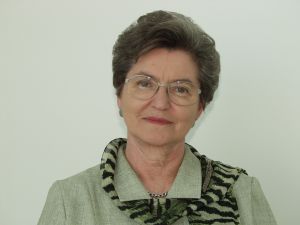 |
Issue 20 (1/2007)
|
|||
FSD Bulletin is the electronic newsletter of the Finnish Social Science Data Archive. The Bulletin provides information and news related to the data archive and social science research.
|
Insights into Differences in Behavioural Strategies
Lea Pulkkinen, Emerita Professor of Psychology at the University of Jyväskylä, began her long and distinguished career by studying socio-emotional behaviour of children. She has created a model of emotional and behavioural regulation which consists of two dimensions: degree of self-control on one hand and behavioural inhibition vs. expression on the other. These two dimensions yield four different behavioural strategies used in conflict situations. The initial idea for the study came when she observed that a teacher's and a child's assessments of the child's personality did not coincide. Pulkkinen focused her interest on aggressiveness which is the personality trait easiest to assess. Her research showed that only a small group of children behave aggressively. The first round of data collection for the Jyväskylä Longitudinal Study of Personality and Social Development (JYLS) took place in 1968 when Pulkkinen collected data for her dissertation. The data on the behaviour of 8-year-old school children, collected through peer nominations and teacher ratings, proved that the model works. Longitudinal study requires staminaOver the last 40 years, various types of data have been collected for the Jyväskylä Longitudinal Study of Personality and Social Development. At the time when the participants were still at school, peer nominations and teacher ratings were used. Later on, when the participants had reached adulthood, data were collected with the help of interviews, self-assessments, and questionnaires. Keeping tract of the participants throughout all this time has required a lot of work. In the early years lack of funding also caused problems, e.g. the researchers could not interview all participants. Hard work and personal contacts with the research subjects have resulted in high participation rate and high quality data. International recognitionProfessor Lea Pulkkinen has received national and international recognition. She was elected the Woman of the Year in Finland in 1983, and the Professor of the Year in 1992. She received the Finnish Science Award in 2001. Recent international recognitions include the Aristotle Prize of the European Federation of Psychological Associations (EFPA) in 2003, and the award for "distinguished contributions to science" of the Society for Research in Child Development, USA, in 2005, and the Distinguished Scientific Award for the Application of Behavioral Development Theory and Research from the International Society for the Study of Behavioural Development (ISSBD) in 2006. Pulkkinen was the first Finn to receive these awards, and also the first woman (except for the ISSB award). Social impact of the researchLea Pulkkinen feels it is her duty to inform decision-makers on how people's quality of life might be improved. She has participated actively in social debate since the 1970s. One recent initiative was the MUKAVA project 2002-2005, led by Pulkkinen. A central component of the project was the integrated school day which sparked a lively public debate. Data widely usedLea Pulkkinen has always been inclined to allow others to use the data collected for the JYLS. Twelve dissertations and about fifty master's theses have been based on the JYLS data. The book Socioemotional Development and Health from Adolescence to Adulthood, published in New York in 2006 and edited by Pulkkinen et al., included contributions from several researchers whose published or yet to be published dissertations are based on data from the project. Lea Pulkkinen is still supervising several dissertations. She would also like to analyse the data herself. More information on the JYLS project.The Jyväskylä Longitudinal Study of Personality and Social DevelopmentThe Jyväskylä Longitudinal Study of Personality and Social Development, begun in 1968, is an ongoing Finnish longitudinal study. The same individuals have been followed up for almost 35 years. The study began with 8-year-old participants, most of whom were born in 1959. Since then, data have been collected in 1969 (boys only), 1974, 1980, 1986, 1992 (a mailed questionnaire only), 1995, 1997 to 1999, and 2001, when the participants were about 42 years of age. The main objectives have been to study continuity in socio-emotional behaviour and personality from childhood to adulthood, the ways in which research subjects' family lives reflect their families of origin, the development of educational and work trajectories, formation of health-related behaviour and state of health, and associations between personality, family, work, and health trajectories. The data are archived at the Finnish Social Science Data Archive.
|
